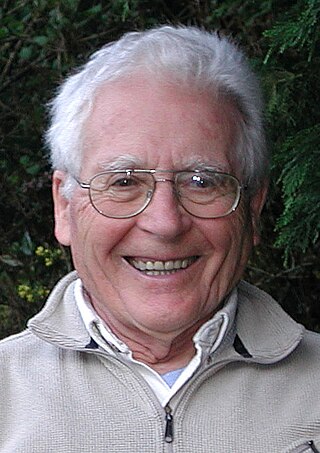
James Ephraim Lovelock was an English independent scientist, environmentalist and futurist. He is best known for proposing the Gaia hypothesis, which postulates that the Earth functions as a self-regulating system.
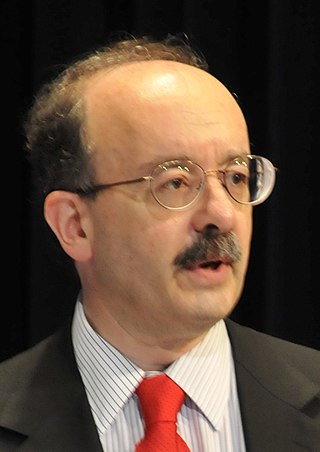
Amory Bloch Lovins is an American writer, physicist, and former chairman/chief scientist of the Rocky Mountain Institute. He has written on energy policy and related areas for four decades, and served on the US National Petroleum Council, an oil industry lobbying group, from 2011 to 2018.
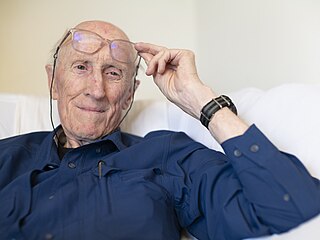
Stewart Brand is an American project developer and writer, best known as the co-founder and editor of the Whole Earth Catalog. He has founded a number of organizations, including the WELL, the Global Business Network, and the Long Now Foundation. He is the author of several books, most recently Whole Earth Discipline: An Ecopragmatist Manifesto.

RMI, formerly known as the Rocky Mountain Institute, is a think tank in the United States co-founded by Amory Lovins dedicated to research, publication, consulting, and lecturing in the field of sustainability, with a focus on profitable innovations for energy and resource efficiency. The Rocky Mountain Institute was established in 1982 and has grown into a broad-based institution with over 600 staff and an annual budget of $120+ million. RMI's work is independent and non-adversarial, with an emphasis on market-based solutions.

In 1976, energy policy analyst Amory Lovins coined the term soft energy path to describe an alternative future where energy efficiency and appropriate renewable energy sources steadily replace a centralized energy system based on fossil and nuclear fuels.
Climate engineering is an umbrella term for both carbon dioxide removal and solar radiation modification, when applied at a planetary scale. However, these two processes have very different characteristics. For this reason, the Intergovernmental Panel on Climate Change no longer uses this overarching term. Carbon dioxide removal approaches are part of climate change mitigation. Solar radiation modification is reflecting some sunlight back to space. Some publications place passive radiative cooling into the climate engineering category. This technology increases the Earth's thermal emittance. The media tends to use climate engineering also for other technologies such as glacier stabilization, ocean liming, and iron fertilization of oceans. The latter would modify carbon sequestration processes that take place in oceans.

Mark Lynas is a British author and journalist whose work is focused on environmentalism and climate change. He has written for the New Statesman, The Ecologist, Granta and Geographical magazines, and The Guardian and The Observer newspapers in the UK, as well as the New York Times and Washington Post in the United States; he also worked on and appeared in the film The Age of Stupid. He was born in Fiji, grew up in Peru, Spain and the United Kingdom and holds a degree in history and politics from the University of Edinburgh. He has published several books including Six Degrees: Our Future on a Hotter Planet (2007) and The God Species: Saving the Planet in the Age of Humans (2011). Lynas is research and climate lead for the Alliance for Science and is co-founder of the pro-science environmental network RePlanet. Since 2009 he has been climate advisor to former president of the Maldives Mohamed Nasheed, and he currently works to assist Nasheed with the Climate Vulnerable Forum, a group of the world's most climate-vulnerable 58 developing countries. He is a strategic advisor for the international ecomodernist NGO WePlanet. He has co-authored a number of peer-reviewed scientific publications, including a 2021 paper which found that the consensus on anthropogenic climate change in the scholarly literature now exceeds 99%.

L. Hunter Lovins is an American environmentalist, author, sustainable development proponent, co-founder of Rocky Mountain Institute, and president of the nonprofit organization Natural Capitalism Solutions.
Bright green environmentalism is an environmental philosophy and movement that emphasizes the use of advanced technology, social innovation, eco-innovation, and sustainable design to address environmental challenges. This approach contrasts with more traditional forms of environmentalism that may advocate for reduced consumption or a return to simpler lifestyles.

Brittle Power: Energy Strategy for National Security is a 1982 book by Amory B. Lovins and L. Hunter Lovins, prepared originally as a Pentagon study and re-released in 2001 following the September 11 attacks. The book argues that the U.S. domestic energy infrastructure is very vulnerable to disruption, whether by accident or malice, often even more so than US technology is vulnerable to disruption of the imported oil supply. According to the authors, a resilient energy system is feasible, costs less, works better, and is favoured in the market, but is rejected by U.S. policy. In the preface to the 2001 edition, Lovins explains that these themes are still very current.
Kenneth Caldeira is an American atmospheric scientist. His areas of research include ocean acidification, climate effects of trees, intentional climate modification, interactions in the global carbon cycle/climate system, and sustainable energy.

Mycle Schneider is a German nuclear energy consultant and anti-nuclear activist based in Paris. He is the lead author of The World Nuclear Industry Status Reports. He has advised members of the European Parliament on energy issues for more than twenty years. In 1997 he received the Right Livelihood Award.

Jeff Goodell is an American author of seven non-fiction books and a longtime contributing writer to Rolling Stone. Goodell's writings are known for a focus on energy and environmental issues. He is Senior Fellow at the Atlantic Council and a 2020 Guggenheim Fellow.
David W. Keith is a professor in the Department of the Geophysical Sciences at the University of Chicago. He joined the University of Chicago in April 2023. Keith previously served as the Gordon McKay Professor of Applied Physics for Harvard University's Paulson School of Engineering and Applied Sciences (SEAS) and professor of public policy for the Harvard Kennedy School at Harvard University. Early contributions include development of the first atom interferometer and a Fourier-transform spectrometer used by NASA to measure atmospheric temperature and radiation transfer from space.
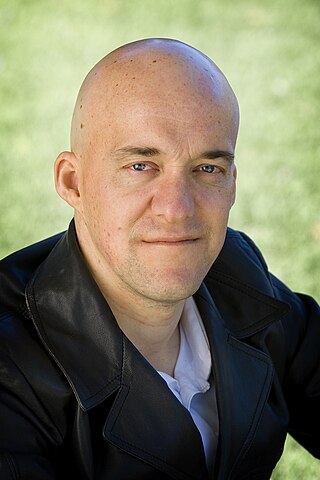
Barry William Brook is an Australian scientist. He is an ARC Australian Laureate Professor and Chair of Environmental Sustainability at the University of Tasmania in the Faculty of Science, Engineering & Technology. He was formerly an ARC Future Fellow in the School of Earth and Environmental Sciences at the University of Adelaide, Australia, where he held the Sir Hubert Wilkins Chair of Climate Change from 2007 to 2014. He was also Director of Climate Science at the Environment Institute.
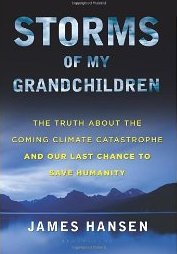
Storms of My Grandchildren: The Truth About the Coming Climate Catastrophe and Our Last Chance to Save Humanity is climate scientist James Hansen's first book, published by Bloomsbury Press in 2009. The book is about threats to people and habitability for life on earth from global warming.
The Breakthrough Institute is an environmental research center located in Berkeley, California. Founded in 2007 by Michael Shellenberger and Ted Nordhaus, The institute is aligned with ecomodernist philosophy. The Institute advocates for an embrace of modernization and technological development in order to address environmental challenges. Proposing urbanization, agricultural intensification, nuclear power, aquaculture, and desalination as processes with a potential to reduce human demands on the environment, allowing more room for non-human species.
The Action Group on Erosion, Technology, and Concentration (ETC), is an international organization dedicated to "the conservation and sustainable advancement of cultural and ecological diversity and human rights." 'ETC' is intended to be pronounced "et cetera." ETC often publishes opinions on scientific research by its staff and board members in topics including community and regional planning, ecology and evolutionary biology, and political science.

Ecomodernism is an environmental philosophy which argues that technological development can protect nature and improve human wellbeing through eco-economic decoupling, i.e., by separating economic growth from environmental impacts.













